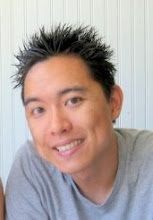So...I've decided to start updating my blog every now and then 'cause I'm going to disappear off into oblivion to study for the USMLE Step 1. =oT
Those of you that are going to be in LA, give me a holler. You know how to reach me; email, facebook, txt, phone, call my parents' house, whatever you gotta do. I should be free nightly or at lunch hour for food or hanging out. If you live close enough, we can go running in the morning. =o)
Oh, so for those of you that don't know what USMLE is, you can wiki right now, or I'll explain. USMLE stands for United States Medical Licensing Exam. It is consisted of 3 parts, or Steps. Named very appropriately as Step 1, Step 2, and Step 3. And here's the break down:
Step 1 -- Taken at the end of 2nd year of med school before they let you into the wards. All the basic science information from the first two years of med school. The major determining factor of what specialty choices a student is limited to and what residency spots a student is able to get. For instance, a 99th percentile score would get you an interview for a spot in Dermatology in California or one of the New England schools. While a 'would have failed if I didn't guess that one question right' score will let you get a spot in a backwaters hospital in the middle of the country in a relatively non-selective specialty like Family Medicine or Pediatrics (yah, makes you wonder at the quality of medical care you're gonna be getting for your kids). So, it's basically the weeder test if anything.
Step 2 -- Taken at the end of 3rd year of med school. This is where they test you on all the clinical stuff you were supposed to learn in the core clinical rotations. I think it's divided up into two tests, CK and CS for Clinical Knowledge and Clinical Skills, respectively. This is probably more reflective of how good of a doctor you will be. But frankly, we all know that the Step 1 is actually weighed more heavily in residency apps. But hopefully, the residency directors will figure out how to weigh the scores more realistically.
Step 3 -- Taken at some point during residency. I think passing this will grant you a license to practice medicine. Honestly, I have no idea what this is all about, but it's the ultimate goal. It has no realistic impact on career options just as long as the person passes. Just so you know, if your doctor is licensed to practice in the US, they've passed this test. So, before you think your doc knows nothing, they've jumped through way too many hoops to prove that they know enough to give you medical advice.
Anyway, back to the main point, I'll be studying 12 hours a day with 8 hours allocated to sleep and 4 hours allocated for food, exercise, and traveling time.
A sample breakdown of the daily schedule:
06:00 Wake up
06:10 Jogging around the neighborhood
06:45 Shower & breakfast
07:15 En transit to cafe to study
07:30 Initiate morning studying (4:30)
12:00 Lunch nearby
12:30 Back to studying (5:30)
18:00 Head home for dinner
18:15 Eat dinner
18:45 Study during the night (1:15)
21:00 Shower
21:15 Continue studying (0:45)
22:00 Pass out
Rinse and repeat for 38 days. And I thought studying for the MCATs were bad.
Can Bulls Conquer Hawks?
14 years ago




No comments:
Post a Comment